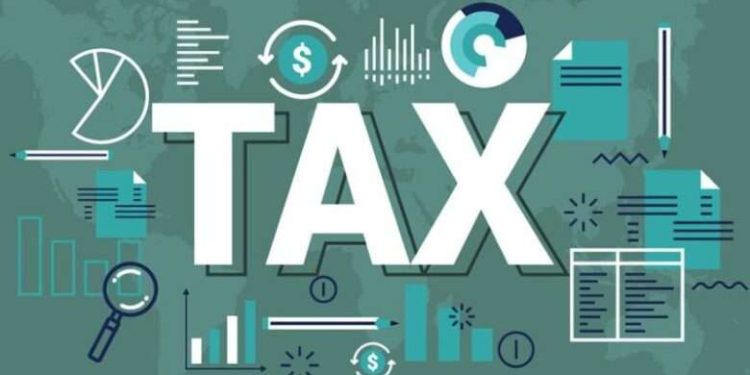Big changes are coming to how self-employed people in the UK handle tax, and Tax Services are about to look very different. From digital reporting to new National Insurance rules, 2025 marks a major turning point for millions of freelancers, consultants, and small business owners across the country.
The Shift to Making Tax Digital (MTD)
Here’s what’s happening. Starting 6 April 2026, if you’re a sole trader or landlord earning more than £50,000, you’ll need to keep digital records and send quarterly updates to HMRC using approved software. The threshold then drops — £30,000 in 2027 and £20,000 in 2028.
So, if you’re self-employed and making a reasonable income, MTD will apply to you soon.
This isn’t just a small tweak. It’s the end of paper logbooks and manual calculations. HMRC wants all income reporting done digitally. The goal is fewer mistakes, quicker updates, and better visibility.
When MTD was introduced for VAT, nearly 70% of businesses said it made record-keeping easier and reduced errors. That’s a good sign, but getting set up early will save you stress later.
Here’s how to prepare:
– Pick HMRC-approved accounting software (such as QuickBooks, Xero, or FreeAgent).
– Start keeping digital records now, even before it’s mandatory.
– Get familiar with quarterly updates so you’re not rushed in 2026.
Changing the “Basis Period”: Why It Matters
Another key change involves when your business profits are reported. Until now, you could choose any accounting year. Now, everyone must follow the tax year basis — 6 April to 5 April.
If your accounting year already lines up with the tax year, you’re fine. But if it doesn’t, you might face a tricky transition. Around half a million sole traders will have to adjust how they report profits.
The government allowed a one-off adjustment period in 2023–24. Some people even faced temporary double taxation due to “overlap” profits. HMRC lets you spread this extra income over five years, but planning ahead is crucial.
Here’s what you should do:
– Check your accounting year. If it doesn’t match the tax year, talk to your accountant.
– Forecast your payments early to avoid cash flow shocks.
– Use overlap relief if you’re still eligible — missing it could cost you.
National Insurance Gets Simpler (Mostly)
From April 2024, Class 2 National Insurance was scrapped for most self-employed people earning above the Small Profits Threshold. That means one less form to worry about — and a small financial boost.
For someone earning around £28,000, the savings might be roughly £350 a year. It’s not massive, but every bit helps.
If your profits are below the threshold, you can still pay Class 2 voluntarily to protect your State Pension. It’s worth checking with HMRC or a tax advisor before opting out — you don’t want to lose pension years without realising.
Stricter Digital Enforcement Is Coming
With MTD, HMRC is also tightening up how it enforces compliance. Late or incorrect filings won’t just get a slap on the wrist any more.
From April 2025, penalties can apply as early as 15 days after missing a deadline — starting at 3% of what you owe and increasing the longer you delay.
HMRC’s new systems are using AI to cross-check your data against digital records. That means mistakes or missed income sources (especially from side gigs or rental income) are easier to spot.
Here’s why this matters:
If you’re juggling multiple income streams — say, freelancing, online sales, or part-time contracting — you’ll need to keep everything consistent and traceable in one digital system.
Not Just a London Issue
This isn’t just about London freelancers or big-city accountants. Whether you’re in Cardiff, Belfast, Glasgow, or Norwich, the same tax rules apply.
What can vary are your local business costs. For example, business rates only apply if you rent separate commercial space like an office or studio. If you work from home — as most self-employed people do — you usually won’t pay business rates at all.
Still, if you’re renting premises, check your rateable value. Small businesses in England with properties under £12,000 can often qualify for Small Business Rate Relief and pay nothing.
How to Stay Ahead: A Simple Plan
Here’s a checklist to stay ready for 2025 and beyond:
1. Go digital early. Migrate to MTD-ready accounting software now.
2. Align your accounting year. Match it with the tax year to avoid double reporting.
3. Budget for transition. Set aside extra funds if you’ll be affected by basis period changes.
4. Check your NI contributions. Protect your pension rights.
5. Get professional advice. A UK-based tax specialist can help you avoid costly mistakes.
Audit Consulting Group and similar firms already support clients through these changes, offering expert Self-Employed Tax Services tailored to MTD and basis period reform.
The Bigger Picture
Let’s be honest — none of this is thrilling stuff. Digital reporting, compliance deadlines, basis period alignment… it’s all admin. But it’s also the future of how tax will work in the UK.
The government’s goal is clear: reduce errors, make tax collection faster, and move everything online. For self-employed people, that means more transparency — and fewer excuses for missing payments.
But here’s the upside. Once you’ve got the right system in place, tax time becomes easier. You’ll see real-time updates, accurate forecasts, and fewer surprises from HMRC.
So, while the transition might feel like a headache now, the long-term benefits are worth it.
If you’re unsure where to start or need help switching to digital tax reporting, reach out to a professional. Audit Consulting Group offers expert support to freelancers, contractors, and small business owners across the UK.
They can walk you through digital setup, explain how the reforms affect you, and make sure you stay compliant — without losing sleep over spreadsheets.
Final Thought:
The UK’s tax system is changing fast. Staying informed and taking small steps now will save you major stress later. Tax might never be fun, but with the right help, it doesn’t have to be a nightmare either.


![7 Best POS Software in the UK [2026 Edition]](https://todaynews.co.uk/wp-content/uploads/2026/02/7-Best-POS-Software-in-the-UK-2026-Edition-360x180.png)








































































